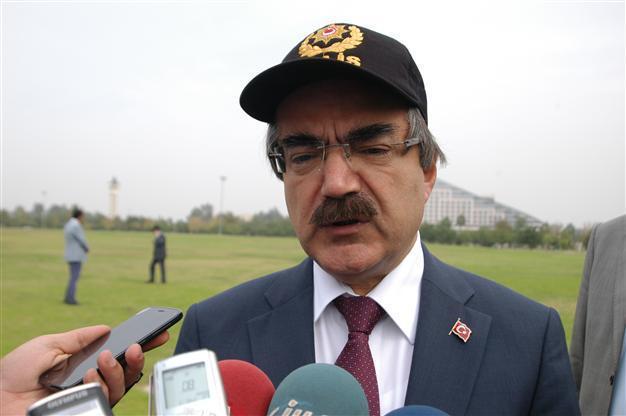Turkey’s government reshuffles more than 30 governors
ANKARA

Back in November, the then-Adana Gov. Hüseyin Avni Coş made nationwide headlines after being caught on camera angrily denouncing a protester as a 'gavat' - roughly translated as 'pimp.'
A government decree replacing 31 governors, including controversial former Adana Governor Hüseyin Avni Coş, has gone into force after being published in the Official Gazette on May 23.
The governors of 12 provinces, out of a total 81 provinces, have been assigned to serve in the national headquarters in Ankara, while 19 governors have been reassigned to other provinces.
Those 19 provinces are Adana, Afyonkarahisar, Ardahan, Bartın, Batman, Burdur, Edirne, Gümüşhane, Hakkari, Kars, Kastamonu, Manisa, Mardin, Ordu, Rize, Sakarya, Siirt, Tokat and Tunceli.
Coş has been moved from Adana province near the Syrian border to Sakarya province in the Marmara region. Back in November, Coş made nationwide headlines after being caught on camera angrily denouncing a protester as a “gavat” - roughly translated as “pimp.”
At first he denied the accusations, claiming to have used the similar-sounding “kavas,” which means “rambler.” However, he later confessed that his “tongue had slipped.” The incident sparked a strong reaction from opposition parties, prompting Prime Minister Recep Tayyip Erdoğan to robustly defend the Adana governor, while admitting that what he did was “inappropriate.”
Hours before publication of the decree reassigning governors, rumors had spread that Istanbul Governor Hüseyin Avni Mutlu was to be promoted to become the Chief of the National Police Department. Such a promotion would have likely sparked a strong reaction from anti-government forces, as Mutlu’s performance during last year’s Gezi Park unrest was widely criticized.
In the end, his name was not in the final decree at all. Several news reports have suggested that Mutlu was not promoted due to the objection of President Abdullah Gül, despite the willingness of Prime Minister Recep Tayyip Erdoğan and his government.
The May 23 reshuffle comes only a week before the first anniversary of the Gezi protests, which spread nationwide due to the excessive use of force by the police against peaceful protesters. The initial protesters were demonstrating against the destruction of Istanbul’s last downtown leafy corner – Gezi Park – and the building of a shopping mall in the form of an Ottoman barracks. The demonstrations started as a sit-in at the park before spreading to become massive anti-government protests throughout the entire country.
Of the nine people whose deaths were related to the demonstrations, one was a police officer.
Interior Minister Efkan Ala, under whose authority governors serve, assumed his current post as part of a Cabinet reshuffle on Dec. 25, which Prime Minister Erdoğan initiated after three key ministers resigned over a sweeping corruption and bribery scandal that targeted his allies and rattled his government.
The May 23 reshuffle is the first major reshuffle since Ala, a former undersecretary at the Prime Ministry, took office.
